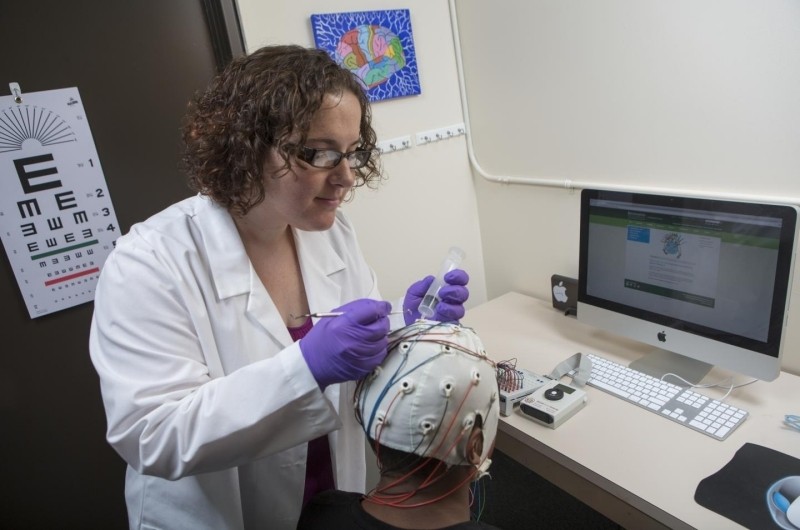The world's brightest minds have been trying for years to come up with a solution to replace the modern password. Researchers at Binghamton University recently developed a plausible solution that utilizes brain activity to authenticate users.
In a recently published study called "Brainprint," researchers studied the brain activity of 45 volunteers as they read through a list of 75 common acronyms such as DVD and FBI. As it turns out, each person's brain reacts differently enough that a computer was able to differentiate volunteers with 94 percent accuracy.
Assistant professor and study co-author Sarah Laszlo notes that if someone's fingerprint is stolen, that person can't just grow a new finger to replace the compromised digit. Brainprints, however, are potentially cancellable. In the unlikely event that an attacker was able to steal a brainprint from an authorized user, Laszlo points out, the user could simply "reset" their brainprint.
As you can imagine, such an elaborate system wouldn't be practical to mass produce for low security applications (at least not anytime soon). Instead, this type of biometric security would initially be reserved for high-security physical locations such as Air Force labs or the Pentagon, assistant professor Zhanpeng Jin added.
The passwords we use to protect our online lives are flawed in a number of ways. Weak passwords are part of the problem but even the most secure of passwords can easily be stolen as the string of data breaches over the past several years has highlighted. In the event you do select a strong password, it's often difficult to remember - especially if you use a different password for each account as experts recommend.
